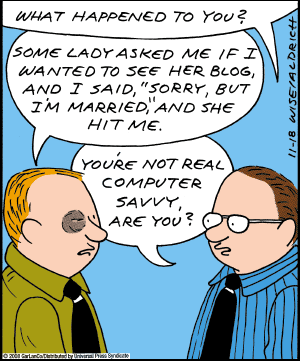
Created by Wolfgang Beyer with the program Ultra Fractal 3.There are also some great images on flickr from the New York Public Library, and LIFE magazine has posted amazing photos on Google.
Licensed by Creative Commons -
Teaching resources and orientation information.

Created by Wolfgang Beyer with the program Ultra Fractal 3.There are also some great images on flickr from the New York Public Library, and LIFE magazine has posted amazing photos on Google.
Licensed by Creative Commons -
 Today's book club discussion will be treating this book (see wikipedia for summary). It's won the 2008 Pulitzer prize for fiction and the National Book Critics Circle award.
Today's book club discussion will be treating this book (see wikipedia for summary). It's won the 2008 Pulitzer prize for fiction and the National Book Critics Circle award. 

NEW YORK – StoryCorps, the most ambitious oral history project ever undertaken, will launch the first annual National Day of Listening on November 28, 2008. On Thanksgiving, Americans and loved ones gather to share a meal, express their gratitude and reminisce. StoryCorps is asking Americans to linger a little longer in the Thanksgiving spirit and honor a loved one by conducting an interview about his or her life.
 This site provides more detail and audio as well as links to a guide to helping you through the interview as well as how to archive and/or share it. In addition to being a great idea for family and personal reasons, it could be a foray into podcasting. If your audio is 8 minutes or less and relates to content taught here at the school, or pedagogy/andragogy, we'd post it on our podcast. You will greatly appreciate the time you spend doing this - regardless of when or if you post it.
This site provides more detail and audio as well as links to a guide to helping you through the interview as well as how to archive and/or share it. In addition to being a great idea for family and personal reasons, it could be a foray into podcasting. If your audio is 8 minutes or less and relates to content taught here at the school, or pedagogy/andragogy, we'd post it on our podcast. You will greatly appreciate the time you spend doing this - regardless of when or if you post it. This post will be a place to respond to ideas from those who attended our session.
This post will be a place to respond to ideas from those who attended our session.
differentiated instruction, using multiple modes of presentation, will positively increase a student’s opportunity for learning. Communicating efficiently, using various communication methods, will enhance a teacher’s instructional effectiveness and a student’s ability to understand. Blogging appears to offer multiple opportunities [for this]...No big surprise. But then the study itself

 Of course it was business during conference hours, and handouts and powerpoints from the conference are available now online.
Of course it was business during conference hours, and handouts and powerpoints from the conference are available now online. Tomorrow (Nov. 13, 2008 at 12:30 in PDR) Cindy Otts will be facilitating a Dine & Design workshop on "Tips and ideas for the first day." Please RSVP to Ben Hayes if you plan to attend.
Tomorrow (Nov. 13, 2008 at 12:30 in PDR) Cindy Otts will be facilitating a Dine & Design workshop on "Tips and ideas for the first day." Please RSVP to Ben Hayes if you plan to attend.
 The physical descriptions of characters intrigues me - men seem to be described initially, but the initial lack of description of the female characters might mean something. Halfway through it I've finally gotten a description of Mari, but not really of her sister. Eri, the model, maybe needs no description because Japanese and Chinese models fit a type: tall and willowy of stature, with higher-bridged and more angular noses, and lacking the epicanthic fold. The mind wandered to how class and status define "beauty" and how the genders see differently. Ethnic groups see differently too. Japanese readers see something exotic in Denny's, the way someone from Kansas might find a Teppanyaki house.
The physical descriptions of characters intrigues me - men seem to be described initially, but the initial lack of description of the female characters might mean something. Halfway through it I've finally gotten a description of Mari, but not really of her sister. Eri, the model, maybe needs no description because Japanese and Chinese models fit a type: tall and willowy of stature, with higher-bridged and more angular noses, and lacking the epicanthic fold. The mind wandered to how class and status define "beauty" and how the genders see differently. Ethnic groups see differently too. Japanese readers see something exotic in Denny's, the way someone from Kansas might find a Teppanyaki house.Ben Hayes collected the following resources as part of a Dine & Design workshop.
 The biggest award (to my biased and imperfect understanding) is the Glenn Schmitz Award. It "recognizes an individual or a group that has provided outstanding service to the NCSPOD board. " This award perhaps creates the most excitement and suspense because it is the only award kept secret. No one outside of the active board, not even the esteemed Helen Burnstad (who has an annual award named after her) knew of the selection before the NCSPOD President, Louanne Whitton, announced the winner.
The biggest award (to my biased and imperfect understanding) is the Glenn Schmitz Award. It "recognizes an individual or a group that has provided outstanding service to the NCSPOD board. " This award perhaps creates the most excitement and suspense because it is the only award kept secret. No one outside of the active board, not even the esteemed Helen Burnstad (who has an annual award named after her) knew of the selection before the NCSPOD President, Louanne Whitton, announced the winner. 700 lbs - so it says.
700 lbs - so it says.
 The Pew Research Center reports that podcasting is continuing to proliferate.
The Pew Research Center reports that podcasting is continuing to proliferate.Unsurprisingly, few people report downloading podcasts every day, but increasing numbers are accessing and downloading content.
Furthermore, access to the necessary hardware is increasing even faster, and socio-economic status doesn't hinder youth from having that hardware: "Like podcast downloading, ownership of iPods and MP3 players has also increased since 2006. According to a December 2007 Pew Internet Project survey, 34% of American adults and 43% of internet users report owning an iPod or MP3 player, up from 20% of the total population and 26% of internet users in April 2006.
Young adults between 18 and 29 years old are the age group most likely to own MP3 players, 61% of whom own these gadgets."


At first I found the first person thing annoying. 1st person narrators are notoriously unreliable, ambiguous and subjective, and he refers to that when he says his “history” is at least true in its essence. That said, this makes it unconventional and artistic. The choice provokes discussion and avoids trite resolution.
The novella is overtly symbolic, in the nature of a Hawthorne novel, and is best understood in terms of an allegory. Wikipedia notes that his name, Changez, is Urdu for Genghis. The Chilean bookseller’s reference to young men captured and trained to kill for their adopted groups is Christian, right? But Genghis Khan’s tribe exchanged princes with the Romans in the same way. Maybe even Genghis himself, (if I remember my history channel).
Erica symbolizes the American dream, much like the Statue of Liberty or any other physical monument. Like Gatsby, Changez reinvents himself for the object of his desire, this Erica/ AmErica.
The crux is the Ghost seduction scene – where, after a failed attempt at “possession” – to “have her” - he tells (Am)Erica, “Imagine I’m Chris.” Changez hijacks the ghost of Chris and uses it to ram the twin pillars of Erica’s long guarded treasure. This results in, as the French would say, “La petit mort” her first with another man (she’d only reached climax one other time since Chris’ death, where she pulled her own trigger while imagining Chris.) Like the towers on 9/11, her shudders signal collapse and impeding devastation.
Or does Changez offer himself up as a vehicle for the ghost – himself a spiritual victim of a long lost idea? We can’t trust his rationalizations. Was Changez the plane or the hijacker? Meat puppet or metaphysical date-rapist? I see him as the incubus who destroys his lover and loses his soul. His rationalizations for co opting the dead Chris smacks of the rationalizations of date rapists on a recent episode of “The Closer.”
The allegory isn't pure or consistent. Working for Underwood Sampson, he’s been blind and weak, but he regains his strength after his hair grows out.Christianity is a clear source of the allegory, but Changez shifting identifications with disparate images shows his actions are rationalizations for baser motives rather than the altruistic goals put forth in a monologue meant, after all, to detain and expose an enemy combatant, so anything said is unreliable. Does he blame some Delilah for cutting his hair? Would he say anything's fair in love or war? Could the pillars be also a Philistine prison?
And what about Chris – and obvious Christ figure who died for the sins of others (remember he died of lung cancer though he’d never smoked until he learned his death was inevitable and immediate)?